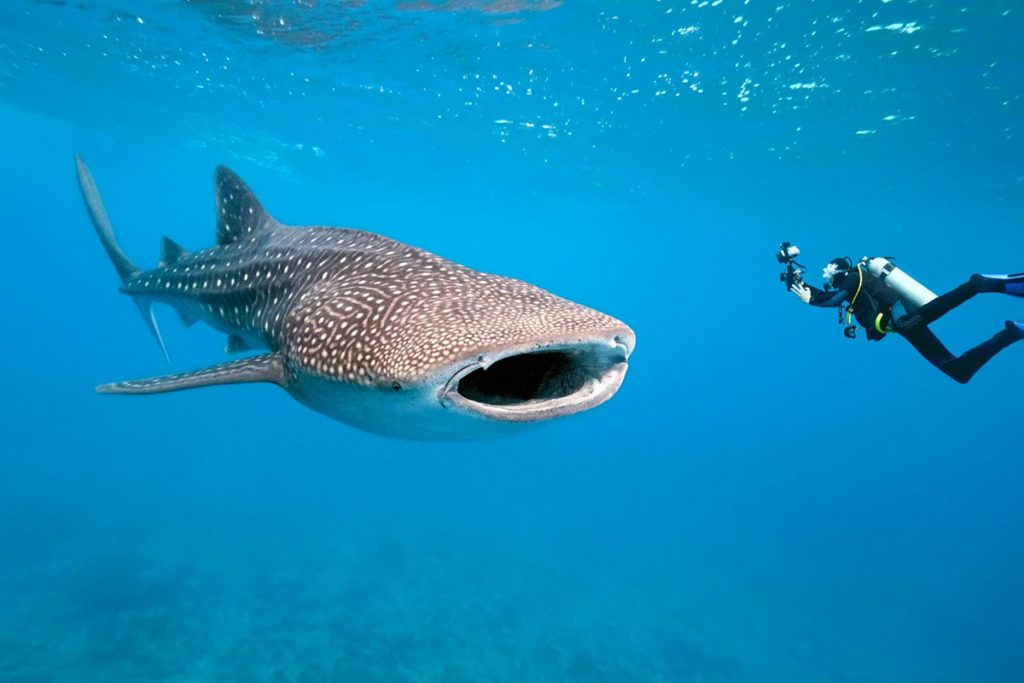Actions for the protection and conservation of the Whale Shark
The whale shark, which can measure between 10 and 12 meters in length and weigh up to 34 tons, is classified as the biggest fish in the world; however, it is completely placid and harmless to humans.
The whale shark is a highly migratory species. Different studies have recorded its long journeys through mild and warm seas around the globe, except for the Mediterranean. In Mexico, every year it visits the Caribbean Sea and the Gulf of California to feed for several months. The feeding zones and the time spent feeding are of utmost importance for its recovery and storage of energy that allows it to continue its travels and to complete its biological cycle.
Its temporary habitat is near to important tourist destinations such as Cancun in Quintana Roo and La Paz in Baja California Sur, visited by tourists from around the world to admire it in all its splendor. Swimming with the whale shark is an activity that provides an important economic spillover for these places; however, the confluence between the rapid growth of the number of tourists in these zones and the vulnerability of the species may put the sustainability of this activity at risk.
Despite its colossal size, worldwide, the whale shark is increasingly threatened by pollution, global warming, illegal fishing, the degradation of its habitats, and injuries caused by boats.
It is estimated that the populations of what could be considered to be the biggest fish in the world have fallen by more than 50% in the last 75 years. For this reason, since 2016, it has been classified as being in danger of extinction according to the Red List of Endangered Species (prepared by the International Union for Conservation of Nature-IUCN).

Since 2008, the Fundacion Carlos Slim (FCS), in alliance with the World Wildlife Fund (WWF) and a group of prominent conservationists and scientists, have worked in collaboration with the authorities to counteract the threats faced by the whale shark in Mexican seas.
In the Caribbean Sea, Pronatura Peninsula de Yucatan A.C. (PPY), together with the Centro de Investigacion y Estudios Avanzados (CINVESTAV), Merida Unit, of the Instituto Politecnico Nacional (IPN), carried out a study on the behavior of the whale shark in the presence of tourist boats and swimmers, as well as the assessment of the status of tourism. They have been able to provide training courses to the tourist service providers (TSP), as well as disseminating the generated scientific information so that swimming with the whale shark follows international standards to prevent alterations to the behavior of this large fish and reduce the harm caused by boats.
In the Gulf of California, the organization Tiburon Ballena Mexico has implemented a monitoring and surveillance system using geolocation technology based on the use of mobile telephones, which together with the training of tourist guides, has achieved a reduction in the number of sharks with injuries due to collisions with boats.
Despite having achieved certain goals, there is still a lot of work to be done and questions to be answered regarding the whale shark and its management. Mexican non-profit organizations, together with scientists, continue to do their part in this important task of protecting and conserving this incredible, unique and colossal species.









